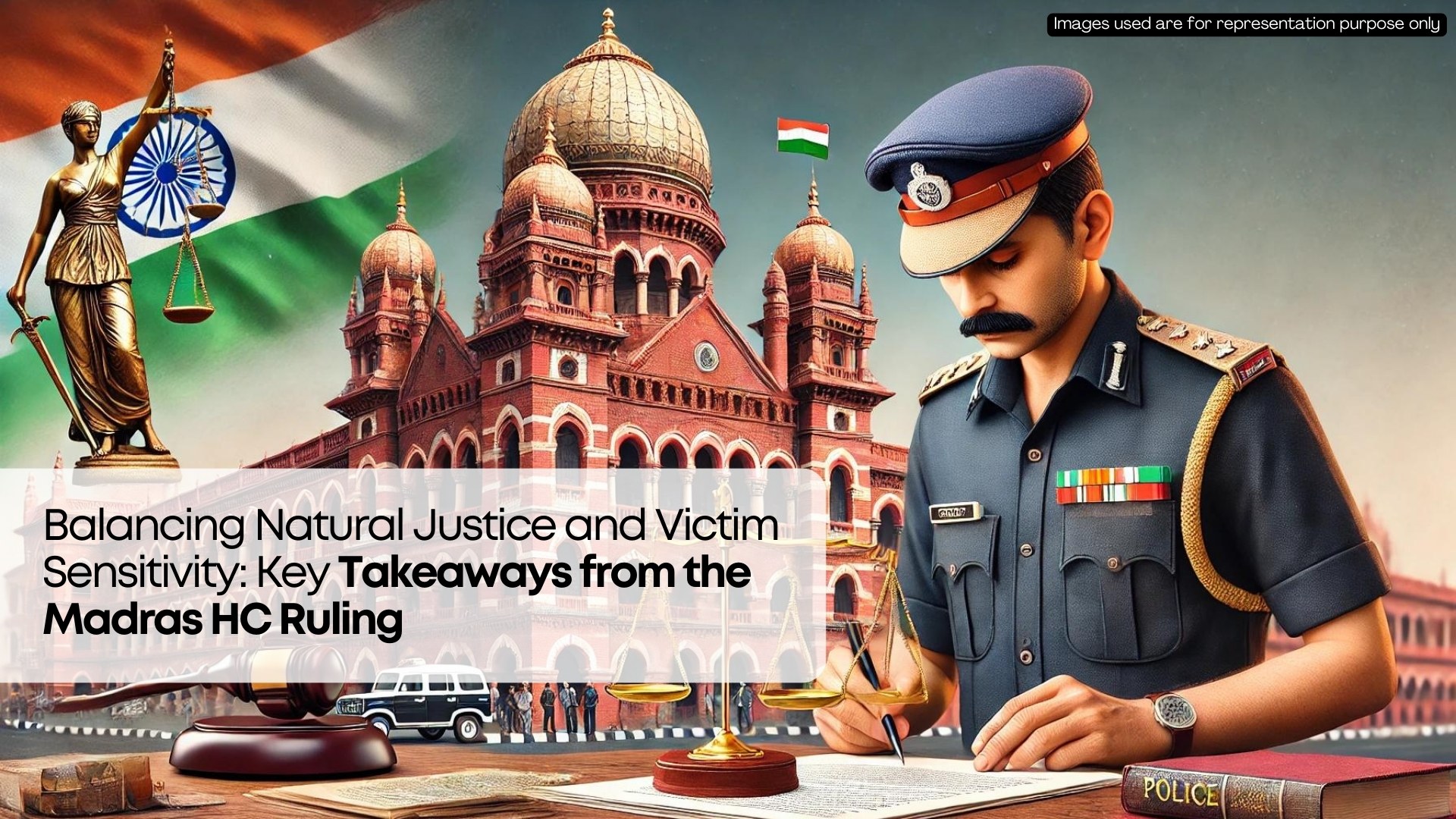On June 11, 2024, the Hon’ble High Court of Madras, through a single judge bench in the case of R. Mohanakrishnan v Deputy Inspector General of Police, delivered a landmark ruling. This judgment emphasized that courts should not be overly influenced by minor discrepancies and technicalities in sexual harassment cases. The focus should be on the overall fairness of the investigation, especially when procedural violations are noted.
Key Judgments
The court also ruled that serious sexual harassment cases causing significant mental distress and anxiety to victims can be reported at any time, bypassing the three to six-month reporting period specified in Section 9 of the POSH Act. The judgment stressed the need for disciplinary authorities and courts to handle these matters with sensitivity and empathy, while ensuring fair and impartial investigations and compliance with the principles of natural justice.
Case Background
This case stemmed from a writ petition filed by a superintendent of the Nilgiris police station in Tamil Nadu under Article 226 of the Indian Constitution. The petitioner sought to quash an enquiry report submitted by the Internal Complaints Committee (ICC) of the Nilgiris Police Station on March 6, 2023. The report was based on an investigation into a sexual harassment complaint lodged by a junior assistant regarding an incident that allegedly occurred over four years ago, in April 2018. The enquiry took place in December 2022.
The petitioner argued that the ICC admitted the complaint contrary to Section 9 of the POSH Act, which requires complaints to be filed within three months of the incident, extendable to six months under certain circumstances. Additionally, the petitioner contended that the ICC’s enquiry did not follow established legal procedures, violating principles of natural justice. Specifically, he claimed he was not given a fair hearing as the ICC delayed providing him a copy of the complaint and denied him the opportunity to cross-examine the alleged victim and witnesses.
Government’s Defense
The Tamil Nadu Government argued that the Section 9 time-limit applies only when the complaint is filed by the aggrieved woman herself, not when referred by the employer. They explained the delay in reporting was due to the survivor’s fear and mental distress. The State also defended the ICC’s process, noting that direct cross-examination was avoided to protect the survivor’s fragile mental state. Instead, pertinent questions from the petitioner were presented to the survivor and witnesses indirectly.
Court’s Analysis and Decision
The Madras HC identified two main issues for consideration:
- Whether the ICC report should be set aside due to the complaint being time-barred under Section 9 of the POSH Act.
- Whether the ICC report violated principles of natural justice.
The court rejected the petitioner’s argument that the ICC should not have admitted the time-barred complaint. It emphasized the importance of considering the power dynamics and psychological trauma that may prevent victims from reporting promptly. The court highlighted that severe and continuous harassment constitutes a ‘continuing offence’ and allows for complaints to be filed outside the statutory period.
Regarding procedural irregularities, the court noted that while procedural compliance is important, deviations that do not undermine the core principles of natural justice are permissible given the sensitivity of such cases. The court clarified that the timeframes in the POSH Act are intended to expedite proceedings, not as strict limitations that nullify the process.
Right to Cross-Examine
The only argument upheld by the court was the denial of the petitioner’s right to cross-examine the victim and witnesses, a critical aspect of ensuring fairness. The court ruled that the petitioner must be allowed to cross-examine witnesses, though flexibility is allowed to prevent further victimization. The ICC was directed to re-summon witnesses for cross-examination and ensure the victim is protected during the process.
The Madras HC directed the ICC to submit a revised enquiry report within 60 days, by August 31, 2024. The disciplinary authority was instructed to complete the proceedings in accordance with service rules.
Conclusion
The Madras HC underscored the pervasive issue of workplace sexual harassment and the profound impact it has on victims. The ruling highlights the need for sensitivity and flexibility in handling complaints, emphasizing the importance of a balanced approach that protects victims while upholding fairness and natural justice.
This judgment reaffirms the commitment to providing a supportive environment for survivors to seek justice, acknowledging the barriers they face in reporting harassment. The court’s decision balances the need for procedural fairness with the realities of the psychological trauma faced by victims, ensuring that the principles of justice are upheld for all parties involved.

Demystifying the Supreme Court’s POSH Act 2013 Directives
The Supreme Court of India has recently issued crucial directives concerning the Prevention of Sexual Harassment (POSH) Act 2013, providing directions for organizations and professionals alike. To help you unlock the full potential of these directives, we’ve created an easily understandable and accessible document that breaks down complex legal jargon into clear, actionable steps.






